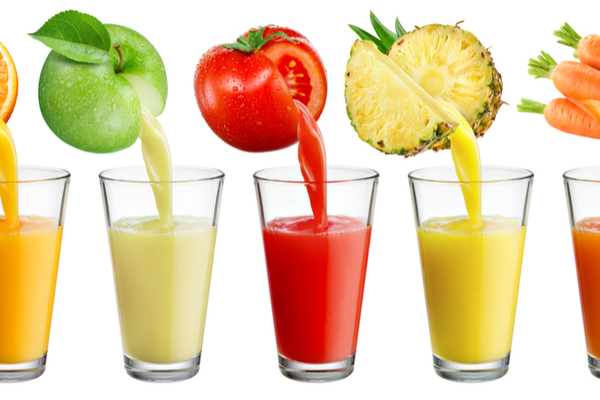There’s a juice for every day of the week, and you, or someone you know, has probably tried them all: green juice, detox juice, and juices infused with ginger and turmeric. Recent research has shown that juices are an effective way to increase vitamins, minerals and phytonutrients in the diet. In the U.S., most people don’t eat enough fruit or vegetables and may miss out on the nutrients they provide: vitamins A and C, potassium, fiber, phytonutrients, and more.
But is drinking juice better than eating the fruits and vegetables they were squeezed from? No one is arguing that we should drink juice instead of eating whole produce. Juicers usually remove fiber, but fiber is important for digestive health and cholesterol reduction, and it helps keep blood sugar under control. “You may be tossing out some of the great things we eat fruits and veggies for in the first place,” says Kim Kirchherr, MS, RDN, a nutrition consultant in Chicago who has worked extensively in supermarket nutrition. .
Calories are another consideration. “How many whole oranges are you using for that glass of orange juice? Five? Six? Would you ever sit down and eat that many whole oranges?” asks Kirchherr. You are probably consuming a lot more calories from juice than you would if you were eating the whole fruit. Denise Barratt, MS, RDN, a nutrition consultant and blogger in Asheville, North Carolina, and the author of Farm Fresh Nutrition, tells her clients, “It is much more economical and nutritious to eat whole fruits and vegetables in smoothies, salads, soups and stir-fries.”
Key Tip: Juices provide nutrition, but they eliminate fiber and increase calorie intake. Eat whole fruits and vegetables instead, since it’s more economical and provides all the nutrient values, including fiber, with fewer calories.
—
Photo Credit: Tim UR / Shutterstock.com
